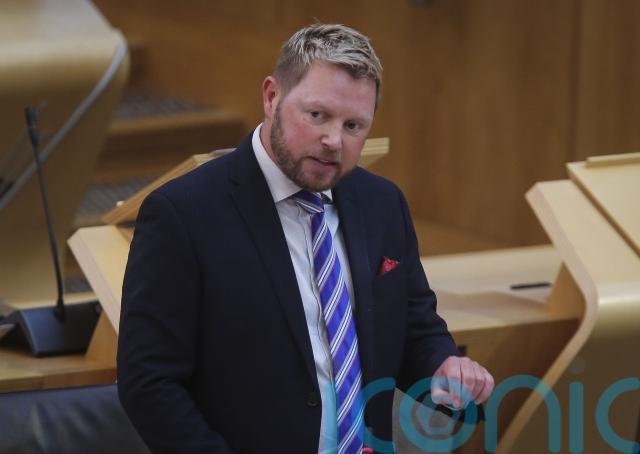
Legal firms are being paid out of settlements given to child abuse survivors through a Government scheme, the BBC has found.
Redress Scotland was set up in 2021 to offer compensation payments of up to £100,000 for people who were abused while in care.
As of the end of January, almost £16 million had been paid out through the scheme, as well as more than £88,000 in legal fees.
But a BBC investigation found law firms were charging as much as 10% to survivors for their services.
The process was created so survivors would be able to apply for compensation without the need for a lawyer, but offered some funding for legal fees if outside support is required.
However, it has emerged some law firms are negotiating with clients for payment outside the scheme.
Digby Brown, one of the country’s biggest personal injury law firms, said it does not charge a flat percentage to survivors looking to access compensation, instead assessing “the value of the exhaustive investigative work required to navigate and undertake redress applications”.
Joanne Preacher, who paid 10% of her compensation to the firm, told the BBC: “It was me who was injured, not them.

“I think they should be paid, just not 10%. It’s too much.”
Helen Holland, a campaigner on behalf of abuse survivors, said firms should be using the existing mechanism to cover fees, adding: “They shouldn’t be charging survivors a percentage.”
The Scottish Government has come under fire over the revelation with Scottish Tory MSP Jamie Greene, a member of the committee which scrutinised the redress legislation in 2020, saying he attempted to pass an amendment which would close the “loophole” allowing law firms to charge survivors.
“Alas, the SNP ignored my warnings that exactly this sort of scenario could arise – casually dismissing my proposals,” he said.
“To now learn that lawyers have taken such a significant chunk of the compensation paid out to survivors is galling but unsurprising.
“Whilst questions must be asked as to why lawyers think it appropriate to exploit this loophole, the primary blame lies with the SNP Government for creating it.
“They must address the serious flaws in this scheme and ensure brave survivors receive every penny of the compensation they deserve.”
Scottish Liberal Democrat justice spokesman Liam McArthur said: “These reports are deeply concerning. This fund is meant to prevent lawyers from swallowing the compensation, but it seems that is not happening.
“I hope that firms will look at the nature of these cases and recognise that this is not a time for excessive profiteering.
“The Scottish Government should consider whether more can be done to strengthen the hand of victims and ensure that they are compensated fully and fairly.”
A spokesman for Digby Brown said survivors found the process to be “needlessly convoluted, emotionally traumatising and unbelievably slow”, and some were “happy to invest in our approach”.
Rates are agreed with clients ahead of time, with the firm saying they are “fully explained to all survivors at the very beginning of the process in clear, plain English as envisaged and allowed under the scheme”.
They added: “It is our legal duty to investigate and confirm all the circumstances, evidence and routes to justice before providing the best possible legal advice because survivors have the right to know all their choices and they do not get any kind of help like this from redress or Government call handlers.
“With everything we do, we seek to empower choice with survivors yet redress fails in this regard as evidenced by its deplorable waiver condition and the consequences of survivors signing away their legal rights.
“We do not charge a flat percentage for redress applications and any fees incurred are deferred until the case has settled and reflect the value of the exhaustive investigative work required to navigate and undertake redress applications.”
A spokesperson for the Scottish Government said applicants were free to come to their own arrangement on fees with a solicitor, should they wish, adding: “Scotland’s Redress scheme has been designed to enable applications to be made without the need for a solicitor.
“However, we recognise that some applicants will want solicitor representation from the outset of their application or during another part of the process, and we strongly encourage it before signing a waiver and accepting a payment from the scheme.
“To allow applicants to make that choice without having to fund it themselves, reasonable legal fees up to set maximum levels will be paid for by the scheme, in addition to the redress payments.
“We do not expect applicants to contribute to legal fees and this should be agreed with their solicitor at the outset.”
Subscribe or register today to discover more from DonegalLive.ie
Buy the e-paper of the Donegal Democrat, Donegal People's Press, Donegal Post and Inish Times here for instant access to Donegal's premier news titles.
Keep up with the latest news from Donegal with our daily newsletter featuring the most important stories of the day delivered to your inbox every evening at 5pm.